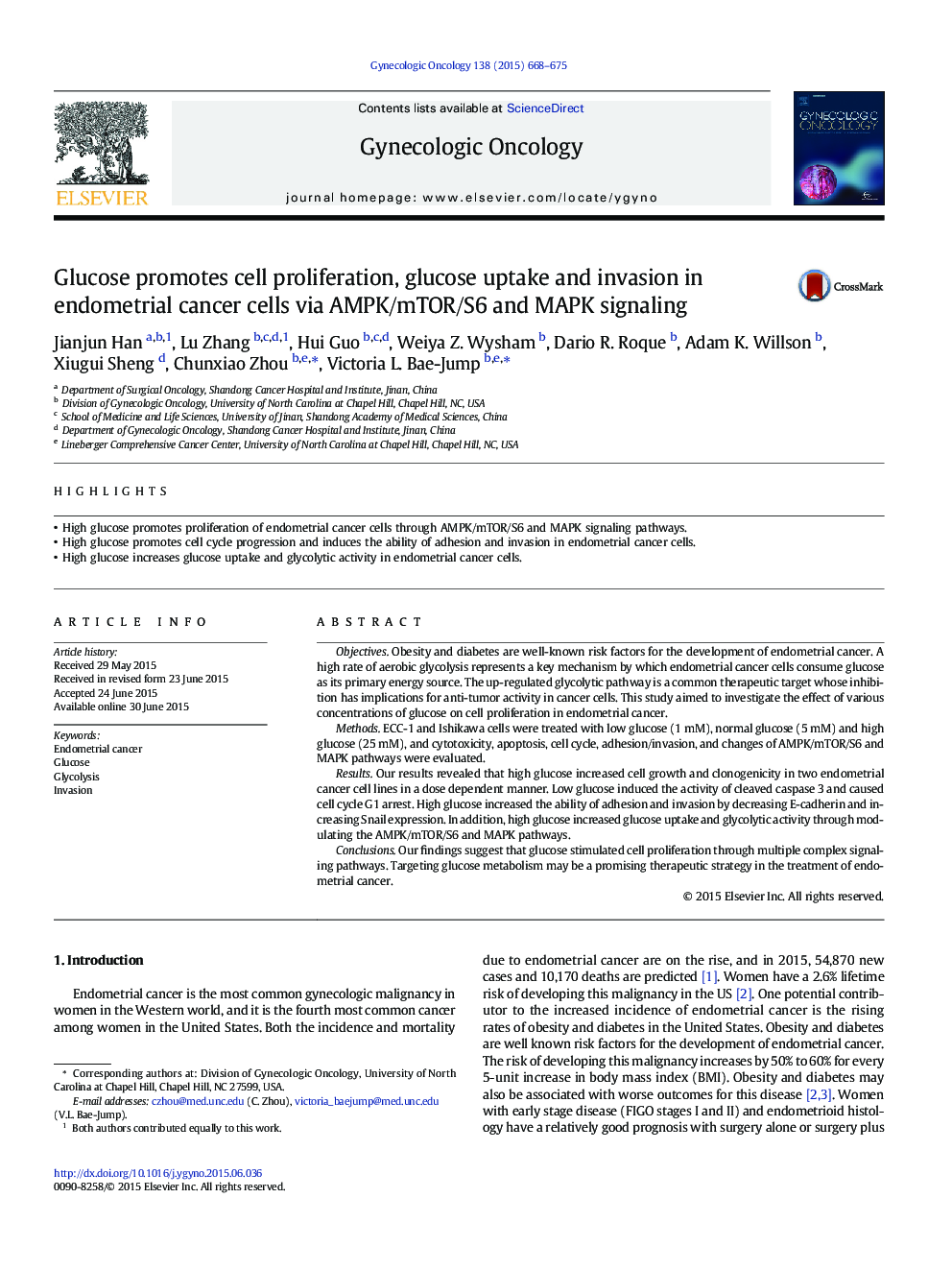| Article ID | Journal | Published Year | Pages | File Type |
|---|---|---|---|---|
| 3942667 | Gynecologic Oncology | 2015 | 8 Pages |
•High glucose promotes proliferation of endometrial cancer cells through AMPK/mTOR/S6 and MAPK signaling pathways.•High glucose promotes cell cycle progression and induces the ability of adhesion and invasion in endometrial cancer cells.•High glucose increases glucose uptake and glycolytic activity in endometrial cancer cells.
ObjectivesObesity and diabetes are well-known risk factors for the development of endometrial cancer. A high rate of aerobic glycolysis represents a key mechanism by which endometrial cancer cells consume glucose as its primary energy source. The up-regulated glycolytic pathway is a common therapeutic target whose inhibition has implications for anti-tumor activity in cancer cells. This study aimed to investigate the effect of various concentrations of glucose on cell proliferation in endometrial cancer.MethodsECC-1 and Ishikawa cells were treated with low glucose (1 mM), normal glucose (5 mM) and high glucose (25 mM), and cytotoxicity, apoptosis, cell cycle, adhesion/invasion, and changes of AMPK/mTOR/S6 and MAPK pathways were evaluated.ResultsOur results revealed that high glucose increased cell growth and clonogenicity in two endometrial cancer cell lines in a dose dependent manner. Low glucose induced the activity of cleaved caspase 3 and caused cell cycle G1 arrest. High glucose increased the ability of adhesion and invasion by decreasing E-cadherin and increasing Snail expression. In addition, high glucose increased glucose uptake and glycolytic activity through modulating the AMPK/mTOR/S6 and MAPK pathways.ConclusionsOur findings suggest that glucose stimulated cell proliferation through multiple complex signaling pathways. Targeting glucose metabolism may be a promising therapeutic strategy in the treatment of endometrial cancer.
